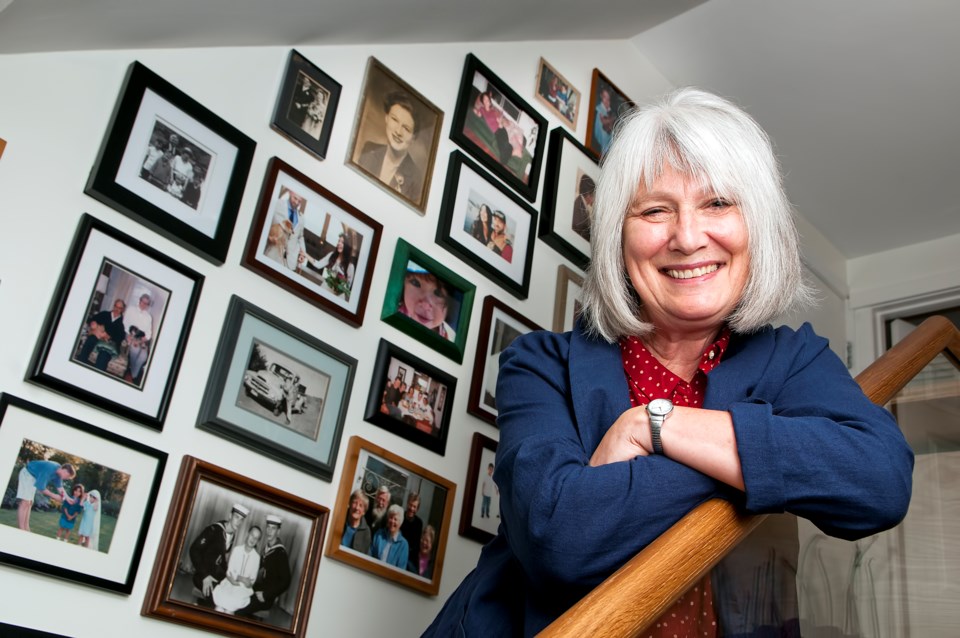Through Guided Autobiography (GAB), Wendy Bancroft helps older adults recall, write and share their stories. GAB participants typically meet once a week for eight weeks, during which time they complete exercises to stimulate memories and enhance self-awareness to better understand past behaviours and future goals. Each week, participants tackle a new theme chosen to reflect a basic human experience, including family, work and health. The theme is discussed in class, but participants write about some aspect of it that draws from their own experiences. Bancroft says because they only work on two pages at a time, compiling a life story is very doable.
Bancroft shared some of her thoughts on GAB and her personal experiences with the Courier.
Q: What makes guided autobiography different from other life story writing classes?
A: GAB was originally designed as a way to combine writing with deep reflection about things that have happened in our lives. Each week we write only two pages about a shared theme such as family, health or what we consider to be our life’s work. Then we share our writing aloud in a small group. Group feedback is not about the writing, it’s about the experience we’ve just shared — and in this small group sharing can be magical. Our memories get jogged and we learn that we aren’t the only ones — other people have dysfunctional families or suffer esteem issues or grapple with health challenges. There is amazing mutual support and honesty and, as a result, some pretty fabulous writing.
Q: You say you’ve been helping people tell stories for more than 30 years. What does that mean?
A: I’ve had three careers — as a journalist with CBC TV, as a senior researcher with two national research organizations, and as a producer, shooting and editing stories in my own production company. Each role has involved helping people tell their stories and helped me gain the kinds of skills I need to lead guided autobiography workshops. Two years ago, I heard about Guided Autobiography and was hooked. GAB combines so much of what I’ve done, love and believe in. I’m leading group discussions and I’m helping people capture and record important parts of their lives. I’m hearing the most amazing stories and seeing wonderful transformations. I love what happens in the groups. It is such meaningful work.
Q: How do you guide clients to find their own story?
A: Each theme comes with triggering questions designed to spark memories. Usually one of those questions does it. A scene will pop into the person’s mind. Remembering sensory details such as smells or sounds, brings them further into that scene. Writing experience isn’t necessary, but people come to this with an ingrained sense of beginning, middle and end and we go from there.
Q: Is it an emotional process? How do you handle that?
A: It can be emotional. We laugh a lot in these sessions, but there have been tears when stories are being shared. When this happens, we give the person time to recover and continue. Someone provides a Kleenex. If the reader can’t continue, I offer to read for them. It’s life, it’s no big deal. So far, I’ve not run into a situation in which I might feel the need to suggest therapy, but that is what I would do if necessary. The GAB process can be therapeutic, but it’s not therapy.
Q: Have you heard any stories that have surprised or really moved you?
A: I think this happens every session. Even though everyone is writing on the same theme, we all have such different experiences. The stories are told in confidence, but some, willingly shared, have been published on my blog.
Q: At the end of the process, what do your clients end up with?
A: At the very least, people walk away with several legacy stories they can share with family or friends or perhaps use to contribute to a larger memoir. But additionally, people often leave with new insights about themselves, about things that happened in their past and about what kind of direction they might want to take in the future.
Q: Any upcoming sessions or workshops we should know about?
A: I do sessions at my home, in classrooms and online. The GAB Sessions at home are full for this fall, but I do have spaces for people who would like to join a group online. Otherwise, I’ll be leading a couple of workshop series through Simon Fraser University’s 55-plus program in the new year.
For more information on those sessions, drop Bancroft a note at wendy@gabsessions.ca. To check out Bancroft’s blog or to see a video of a GAB session, visit gabsessions.ca.



